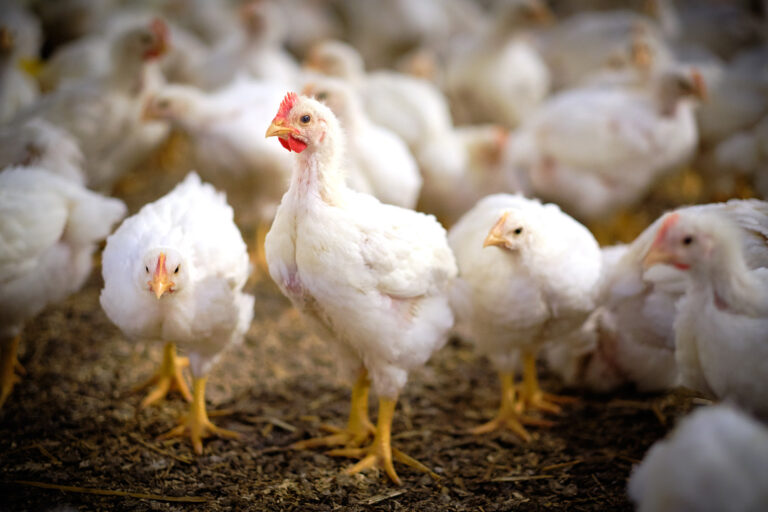The global focus on the contribution livestock production is making to the development of anti-microbial resistance has somewhat overshadowed the problem of resistance to the anticoccidials used in poultry production. But this is changing. This article first appeared in the Innovation supplement, published in April 2021.
The worldwide use of anticoccidials has inevitably led to varying degrees of resistance to all anticoccidial drugs and globally major producers have all highlighted the problem. Alternative strategies, including the use of vaccinations, changes in management practices, and nutraceutical ingredients are all being examined as a possible means of preventing the significant losses that can occur with an outbreak of coccidiosis.
The damage caused by the Eimeria species also predisposes the bird to other damaging diseases such as Necrotic Enteritis, and globally the losses associated with coccidiosis are estimated to be around £1.45 billion.
Coccidia Parasites – what they do?
When infective coccidial oocysts are ingested, they colonise the intestines inducing a strong inflammatory response which destroys the intestinal villi, leading to diarrhoea and death in some cases.
“Research and development work has lead to the conclusion that any alternative solution designed to mitigate the risk of coccidial damage must be multi-functional,” says Dr Helen Stebbens, Innovad sales manager for UK & Ireland. “Disruption of the life cycle of the parasite to reduce its infectivity or reproducibility, anti-oxidant and anti-inflammatory activities, and increased immunity will work together to limit intestinal damage, a reduction in performance and financial losses.”
Aflocox – natural aid for mitigating the risk of coccidiosis
A blend of 100% natural plant bio-active ingredients has been formulated to provide four key modes of action to mitigate the risk of coccidiosis. Saponins, flavonoids, phenolics, terpenes and carotenoids have been combined to produce an in-feed solution that is standardised on saponin content to ensure efficacy.
Mode of Action #1– Eimeria Disrupter
“Triterpenoid saponins are included in Aflocox to disrupt the development of the Eimeria parasite,” says Milena Sevastiyanova, DVM and global technical lead for intestinal health, who was closely involved in the development of Aflocox. “These particular saponins form complexes with cholesterol in the parasite cell membrane producing pores. The oocysts produced are incomplete and this leads to cell lysis and death, reducing the infection pressure on the bird.”
Mode of Action #2 – Immunity Enhancer
Aflocox contains several bio-active immunomodulatory compounds that reinforce the bird’s immunity during coccidial infection helping to prevent the development of further diseases or conditions such as necrotic enteritis.
Mode of Action #3 – Anti-Oxidant
Free radical oxidative species are produced by the bird’s cellular immune response during invasion by Eimeria species. Although, this response plays an important role in defending against parasitic infections, when concentrations exceed a certain threshold, tissue damage and cytotoxicity are the result. The antioxidant bio-actives within Aflocox can alleviate excessive oxidative stress during infection.
Mode of Action #4 – Anti-Inflammatory
The intestinal invasion of Eimeria elicits a strong inflammatory response in the bird, which results in the destruction of the absorptive intestinal villi, diarrhoea and even death in severe cases. The plant bio-actives within Aflocox have been selected for their ability to reduce the acute inflammatory response encountered during coccidial infection.
This blend of ingredients has been subject to anticoccidial sensitivity testing at an independent poultry research centre in Belgium, using a severe mixed Eimeria challenge. “This infection with E. acervuline, E. maxima and E. tenella resulted in 25% mortality amongst the birds. However, mortality was reduced to 0% in the group of birds fed Aflocox in combination with Innovad Lumance, a source of mixed butyrins, essential oils,” says Stebbens.
Further trials are currently underway in Belgium under controlled, but commercial, conditions examining the effects of Aflocox on growth performance and gut health.
“The positive results achieved to date with Aflocox are most encouraging,” says Stebbens. “As a 100% natural product it is compatible across various production systems from antibiotic free, through to conventional systems facing the problem of growing resistance to existing anti-coccidials. It is also fully compatible with units choosing to vaccinate.”
With no withdrawal period, and no build-up of resistance Aflocox meets the food safety requirements becoming more important to the consumer; the low inclusion rate and stability to the pelleting make it an attractive option for feed manufacturers too.

Previous ArticleAnnual profits fall at Glenrath Farms following challenging year
Chloe Ryan
Editor of Poultry Business, Chloe has spent the past decade writing about the food industry from farming, through manufacturing, retail and foodservice. When not working, dog walking and reading biographies are her favourite hobbies.

